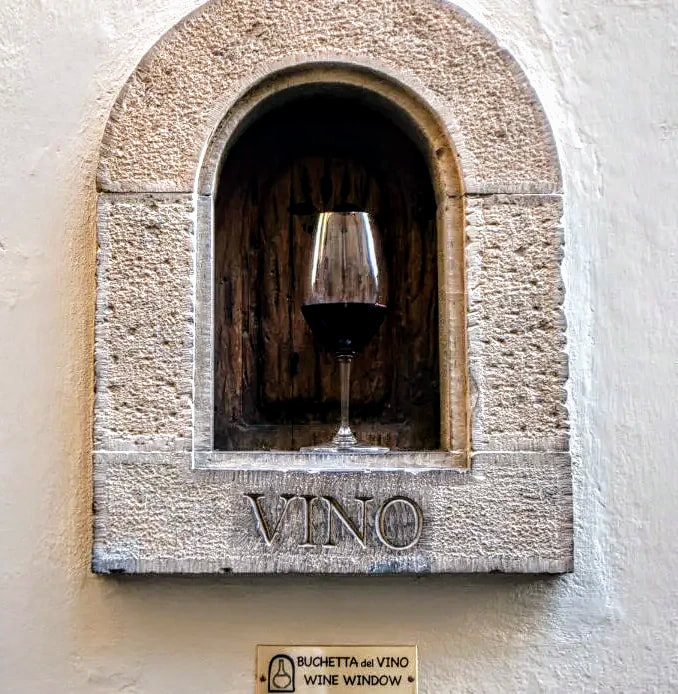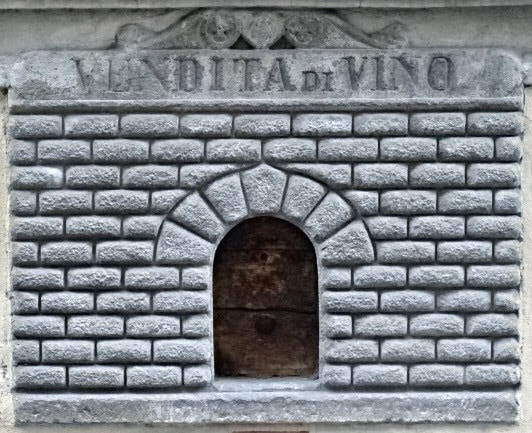The 'Wine Windows' of Florence
|
It is hard to walk around Florence for long before one starts to notice what look like tiny windows at the base of some of the city's palazzi. A few of the 'windows' are inscribed with the word vino, which gives a clue as to their purpose.
Known as buchette del vino (little holes of wine), they were the means by which the owners of a palazzo sold their wine directly to the public. Cutting out the middle men had obvious advantages for both buyers and sellers. The buchette del vino were sometimes referred to as tabernacoli del vino, as their shape resembles that of small shrines (tabernacoli). The Scottish writer Tobias Smollett (1721-77) wrote about the buchette in his book Travels in France and Italy (1766): "...in every palace or great house in this city, there is a little window fronting the street, provided with an iron knocker, and over it hangs an empty flask, by way of a signpost. Thither you send your servant to buy a bottle of wine. He knocks at the little wicket, which is opened immediately by a domestic, who supplies him with what he wants..." The practice died out long ago and many of the buchette del vino, or 'wine windows' as they have come to be known in English, were either sealed up or removed. |

